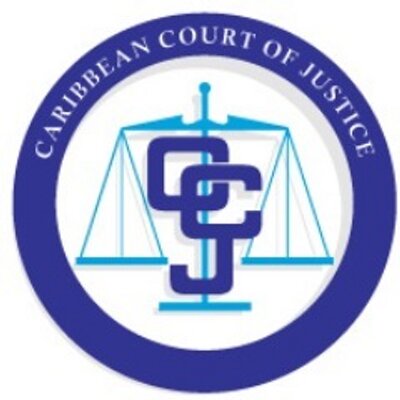Finding what it described as “severe shortcomings,” the Caribbean Court of Justice (CCJ) yesterday threw out a claim brought by the Government of Belize which had sued the Government of Trinidad and Tobago (T&T) on allegations of failing to apply a 40% Common External Tariff (CET) on some 3,000 tons of brown sugar imported from Guatemala and Honduras in 2019.
In the lawsuit brought before the Court’s Original Jurisdiction, Belize was claiming that the T&T Government breached the Revised Treaty of Chaguara-mas (RTC), which established the Carib-bean Single Market and Economy (CSME), by failing to apply the CET to the non-regional imports and was seeking compensation for same.
In a case which would have been watched closely by Guyana, Trinidad, however, denied any wrongdoing.
President Justice Adrian Saunders in delivering the judgment of the Court, said that in international law litigation, a State alleging a breach of treaty obligations by another State, bears the burden of proving that allegation.
On this point he said that the nature of the evidence in support of a claim may vary, while specifically noting that in the absence of direct evidence that is solely in the power or control of a defendant-State, the claimant-State may be permitted to rely on circumstantial evidence.
Justice Saunders said the Court found that there were “severe shortcomings in the evidence offered by Belize” in respect of the alleged failure of Trinidad and Tobago to apply the CET, while noting that those failures “were not cured” by reference to circumstantial evidence.
In its judgment, the Court emphasized the importance of maintaining the CET—especially in respect of the importation of an extra-regional product such as brown sugar which Justice Saunders said is of “demonstrable importance” to a Member-State such as Belize which manufactures it.
The CCJ found, however, that the CET “does not guarantee Regional brown-sugar producers an assured market, but [rather] that those producers are entitled to the protection of the market that the CET is intended to provide.”
Contrary to arguments advanced by Trinidad, however, the Court said that Belize presented the claim for its own benefit and that of Belize Sugar Industries (BSI) and found that “there was no doubt” that under the RTC, Belize was entitled to espouse its claim on behalf of BSI.
On this point Justice Saunders said that the clear text of Article 222 of RTC means that the contracting-party may espouse a claim on behalf of nationals—natural—or juridical; and where they omit or decline to do so under Article 222 (C) (1) or where the contracting party has expressly agreed that the persons concerned may espouse a claim instead of the contracting party so entitled under Article 222 (C) (2), those nationals may, with the leave of the Court, espouse a claim on their own behalf.
The Court ordered each State to bear its own cost.
The case was presided over by Justice Saunders, along with Justices Jacob Wit, Winston Anderson, Maureen Rajnauth-Lee, Denys Barrow, Andrew Burgess and Peter Jamadar.
Belize was represented by Senior Counsel Andrew Marshalleck and Samantha Matute-Tucker; while Trinidad was represented by a battery of attorneys led by Amrita Ramsook and Terrence Bharath.
It had been the assertion by Belize on behalf of BSI which exports brown sugar to Trinidad, that between November 2018 and June 2020, brown sugar from Guatemala and Honduras entered Trinidad without application of the 40% CET.
This Belize contended resulted in reduced prices and sales of BSI-produced brown sugar.
Belize further alleged that Trinidad and Tobago had breached the obligation imposed by the RTC, to apply and maintain a CET rate of 40% on extra-regional imports of brown sugar entering the CSME to strengthen the regional sugar industry and create an assured market.
As a result, Belize sought declarations and damages against Trinidad and Tobago.
In its defence, Trinidad denied that it had permitted the importation of extra-regional brown sugar in a manner that was inconsistent with its obligations under the RTC.
Specifically, the defendant-State denied that it had permitted the importation of extra-regional brown sugar from Guatemala and Honduras without the imposition of the 40% CET.
Trinidad and Tobago had further sought to contend that BSI was not a State-owned entity of Belize and that Belize could therefore not present a claim for the benefit of BSI nor claim damages on behalf of BSI.
This argument, however, found no favour with the Court.
Justice Saunders had noted that at the hearing Belize indicated its willingness to accept, in substitution of the relief claimed, “appropriately-worded judicial statements of the importance of implementation and maintenance of the CET on extra-regional brown sugar” which the Court did do.
Justice Saunders noted that while robustly defending the case brought against it, Trinidad offered no objection regarding that manner of proceeding and as a result the Court was not required to make findings or rely on the evidence to make statements sought.






